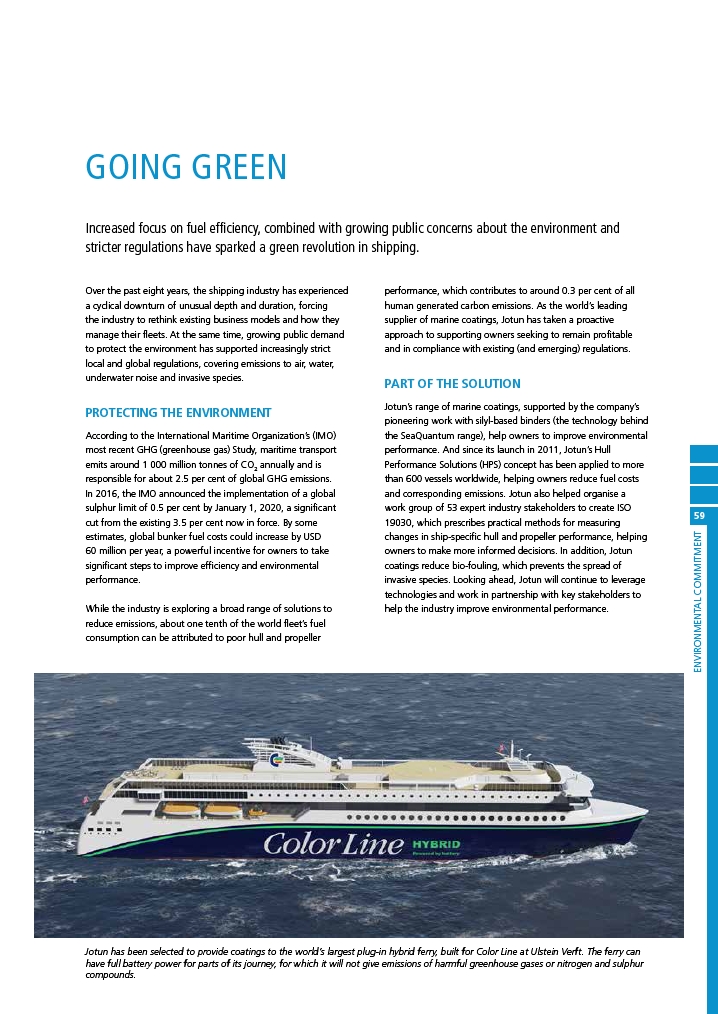
59
ENVIRONMENTAL COMMITMENT
GOING GREEN
Increased focus on fuel efficiency, combined with growing public concerns about the environment and
stricter regulations have sparked a green revolution in shipping.
Over the past eight years, the shipping industry has experienced
a cyclical downturn of unusual depth and duration, forcing
the industry to rethink existing business models and how they
manage their fleets. At the same time, growing public demand
to protect the environment has supported increasingly strict
local and global regulations, covering emissions to air, water,
underwater noise and invasive species.
PROTECTING THE ENVIRONMENT
According to the International Maritime Organization’s (IMO)
most recent GHG (greenhouse gas) Study, maritime transport
emits around 1 000 million tonnes of CO2 annually and is
responsible for about 2.5 per cent of global GHG emissions.
In 2016, the IMO announced the implementation of a global
sulphur limit of 0.5 per cent by January 1, 2020, a significant
cut from the existing 3.5 per cent now in force. By some
estimates, global bunker fuel costs could increase by USD
60 million per year, a powerful incentive for owners to take
significant steps to improve efficiency and environmental
performance.
While the industry is exploring a broad range of solutions to
reduce emissions, about one tenth of the world fleet’s fuel
consumption can be attributed to poor hull and propeller
performance, which contributes to around 0.3 per cent of all
human generated carbon emissions. As the world’s leading
supplier of marine coatings, Jotun has taken a proactive
approach to supporting owners seeking to remain profitable
and in compliance with existing (and emerging) regulations.
PART OF THE SOLUTION
Jotun’s range of marine coatings, supported by the company’s
pioneering work with silyl-based binders (the technology behind
the SeaQuantum range), help owners to improve environmental
performance. And since its launch in 2011, Jotun’s Hull
Performance Solutions (HPS) concept has been applied to more
than 600 vessels worldwide, helping owners reduce fuel costs
and corresponding emissions. Jotun also helped organise a
work group of 53 expert industry stakeholders to create ISO
19030, which prescribes practical methods for measuring
changes in ship-specific hull and propeller performance, helping
owners to make more informed decisions. In addition, Jotun
coatings reduce bio-fouling, which prevents the spread of
invasive species. Looking ahead, Jotun will continue to leverage
technologies and work in partnership with key stakeholders to
help the industry improve environmental performance.
Jotun has been selected to provide coatings to the world’s largest plug-in hybrid ferry, built for Color Line at Ulstein Verft. The ferry can
have full battery power for parts of its journey, for which it will not give emissions of harmful greenhouse gases or nitrogen and sulphur
compounds.